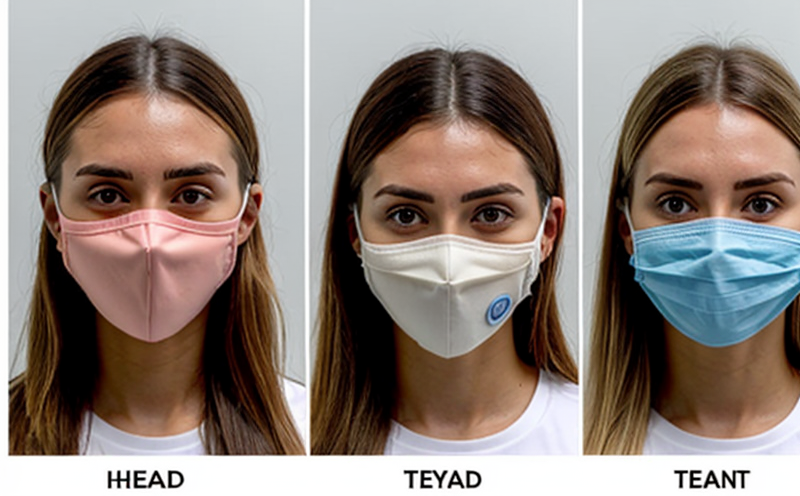BS EN 174 Sunglasses and Goggles UV Testing
The BS EN 174 standard is crucial for manufacturers of sunglasses and goggles aimed at protecting users from ultraviolet (UV) radiation. This testing ensures that the products meet stringent requirements to provide adequate protection against harmful UV rays, which can cause eye damage over time. Compliance with this standard is particularly important in sectors where workers are exposed to direct sunlight or artificial light sources known for their high UV output.
Under BS EN 174, sunglasses and goggles undergo rigorous testing procedures designed to evaluate the levels of UV protection they provide. This involves exposing specimens to specific wavelengths of ultraviolet light and measuring how much of these harmful rays are filtered out by the lenses. The tests aim to ensure that the products meet or exceed the minimum requirements set forth in the standard.
Manufacturers must carefully follow prescribed procedures for preparing samples, including cleaning them thoroughly before testing to avoid any interference with results. Once prepared, the samples are placed into a calibrated test chamber where they are exposed to UV light under controlled conditions. The intensity and duration of exposure vary depending on the specific requirements outlined in BS EN 174.
After being subjected to the required amount of UV radiation, the lenses undergo detailed analysis using specialized equipment capable of detecting minute changes in light transmission. This allows for precise measurement of how much UVB and UVC rays pass through the lens material. Compliance with this standard is essential not only from a safety perspective but also to maintain consumer confidence in your brand.
It's worth noting that while BS EN 174 focuses primarily on UV protection, it does not cover other types of optical performance such as visual acuity or color distortion. Therefore, additional testing may be necessary depending on the intended use and market requirements for these products. By adhering strictly to this standard during development and production processes, you can ensure that your sunglasses and goggles offer reliable protection against harmful UV rays.
In summary, BS EN 174 Sunglasses and Goggles UV Testing is vital for ensuring compliance with international standards related to occupational safety and protective equipment testing. It plays a crucial role in safeguarding workers' health by providing effective shielding from potentially damaging ultraviolet radiation.
Applied Standards
The BS EN 174 standard applies specifically to the design, manufacturing, and performance evaluation of protective eyewear used to shield eyes from harmful UV radiation. This includes both sunglass frames with lenses (including polarized) and goggles designed for various applications such as construction work, sports activities, or general outdoor use.
- BS EN 174:2016 specifies the minimum requirements concerning the filtering properties of sunglasses and goggles to protect against UVB and UVC radiation.
The standard sets out detailed specifications regarding the types of tests that must be conducted, including those aimed at assessing the effectiveness of the UV protection offered by the lenses. These tests are designed to ensure that any product bearing the CE marking complies with all relevant European Union directives on personal protective equipment (PPE).
Compliance with BS EN 174 is mandatory for manufacturers wishing to sell their products within Europe or other regions where this standard is recognized as an international benchmark. Non-compliance could result in legal issues, reduced market access, and damage to brand reputation.
In addition to meeting the technical requirements specified in BS EN 174, companies may also choose to implement additional voluntary measures beyond those required by law. Such actions can further enhance product quality and safety while demonstrating a commitment to excellence that exceeds basic regulatory expectations.
Industry Applications
- Sports Protection: Sunglasses and goggles used in sports like skiing, snowboarding, or water sports often come under intense UV exposure. Ensuring they meet BS EN 174 standards helps protect athletes from potential long-term eye damage.
- Construction and Industrial Work: Workers exposed to prolonged periods of sunlight during their daily tasks benefit greatly from protective eyewear that complies with this standard, reducing risks associated with UV-induced ocular conditions.
- Cosmetic Sunglasses: For high-end fashion brands targeting consumers who value both style and functionality, adhering to BS EN 174 ensures that the lenses offer adequate UV protection without compromising on aesthetics.
The versatility of this standard makes it applicable across multiple industries where eye health is paramount. By adopting these tests into their quality assurance processes, manufacturers can provide consumers with peace of mind knowing they are receiving products designed to meet stringent safety standards.
Why Choose This Test
Choosing BS EN 174 Sunglasses and Goggles UV Testing offers several advantages that go beyond merely meeting regulatory requirements. Firstly, it provides assurance of consistent product quality by validating the effectiveness of your UV protection features during each production cycle. Secondly, it enhances brand reputation among consumers who prioritize safety when purchasing protective eyewear.
Additionally, compliance with this standard increases market competitiveness by allowing products to bear the CE marking, which is widely recognized across Europe and beyond as a symbol of trustworthiness. This can lead to increased sales opportunities both domestically and internationally.
From an operational standpoint, conducting regular BS EN 174 tests helps identify any inconsistencies early on in the manufacturing process. Addressing these issues promptly ensures that all final products meet the highest standards before reaching customers' hands. This proactive approach not only minimizes potential recalls but also saves time and resources associated with post-production adjustments.
Furthermore, participating in this type of testing demonstrates a commitment to innovation within your organization. Keeping abreast of evolving industry trends and adopting best practices such as these can set you apart from competitors who rely solely on outdated methods or minimal quality control measures.
In conclusion, selecting BS EN 174 Sunglasses and Goggles UV Testing is an investment in long-term success that benefits all stakeholders involved—manufacturers, distributors, retailers, and ultimately end-users. It ensures not only regulatory compliance but also superior product performance and enhanced brand loyalty.





